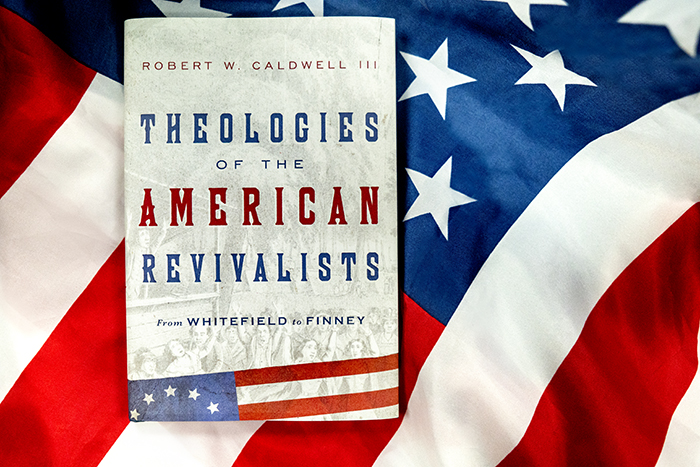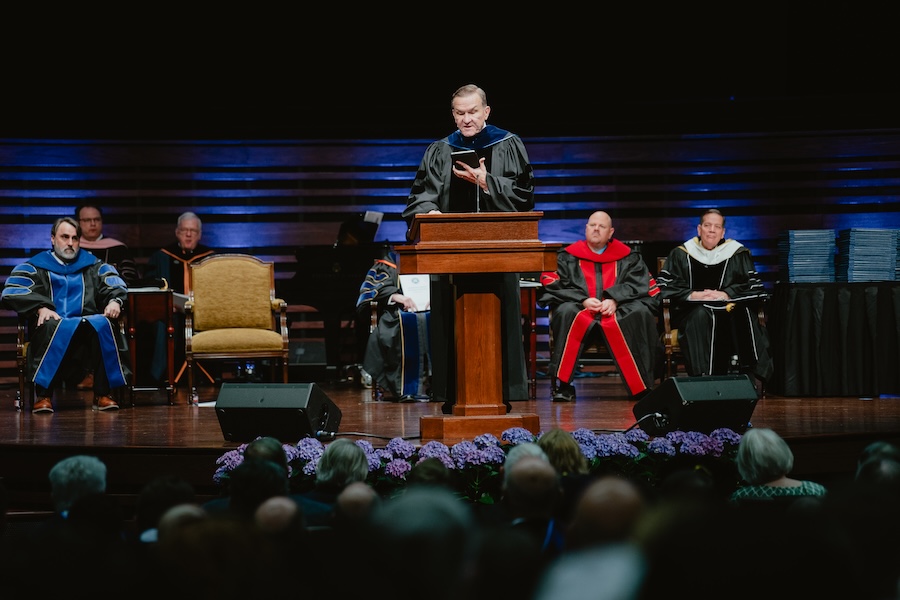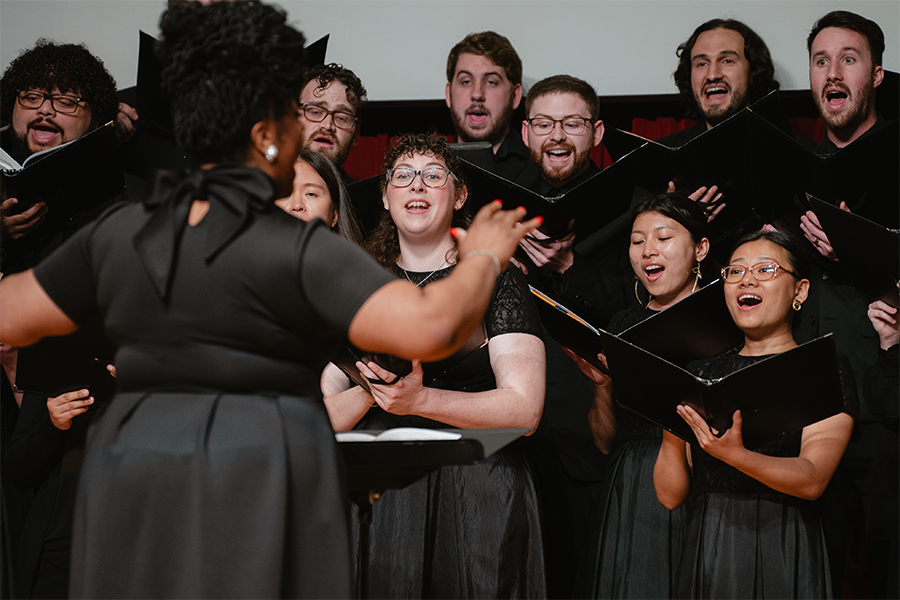An Interview with Robert Caldwell on American revivals

Robert Caldwell, associate professor of church history at Southwestern Seminary, has written a new book, Theologies of the American Revivalists: From Whitefield to Finney, which explores the theologies underlying the revivals of America’s past. Both TheWayofImprovement.com and EdwardsStudies.com have produced Q&As with Caldwell on his motivation for writing the book and the conclusions he drew. Below is a compilation of these two interviews.
Q: In two sentences, what is the argument of Theologies of the American Revivalists?
A: Theologies of the American Revivalists argues that American revivalists from the First and Second Great Awakenings (1740-1840) thought, preached and wrote extensively on what I call “revival theology,” which I define as the three-fold combination of Protestant soteriology, conversion expectations, and preaching practices associated with revival. The book identifies, explores and charts the historical theological developments of the various different schools of revival theology of the period, with specific attention given to the major controversies and writers.
Q: What led you to write Theologies of the American Revivalists?
A: Ever since my seminary days, I have been fascinated at the interplay between theology and Christian experience or spirituality, most specifically related to Christian conversion. As a scholar working on the First and Second Great Awakenings, I found that many revivalists had a well-developed theology that combined soteriology (doctrine of salvation) with insights related both to how Christian conversion was supposed to be experienced and how the Gospel is to be proclaimed. I found that from 1740-1840 there was a rich genre of literature that combined these three elements, which collectively I call “revival theology.”
Evangelical churches today have given little theological reflection to the nature of Christian conversion and revival. Much of what they do understand is practically oriented and often pre-theological. In this book, I examine the numerous schools of theology that evangelicals employed at a time when there was much more theological writing and preaching on the subject. My hope is that Christians today will be both informed and challenged by the various schools of thought presented in the book.
Q: What are some of your conclusions about the importance of revivalism? What are some of its lasting results that we still feel today?
A: While revivals may be thought of as phenomena of the past, they are still an important part of the evangelical church today:
- s
- They form a fundamental part of evangelical identity and our historical memory. Many of us would love to see revival happen in our churches, even though we may differ theologically or practically as to what that would look like.
- The most authentic revivals occur in the context of a ministry that is deeply informed by biblical theology and spirituality. While we can’t schedule a revival (i.e. we can’t produce one by our own efforts; God is not on our timeline), pastors who know the Word and who know how to apply it to real lives can increase the chances that a revival may occur by being faithful to their calling of preaching, teaching and shepherding souls.
- Revivals can happen again. We don’t need to wait for a certain set of social, cultural or political conditions to be manifested in our society before one happens. All we need are Christians and pastors who are faithful in prayer and sound in the proclamation of the Word.
s
s
The phenomenon of revivals over the last several centuries has resulted in a number of features of that are still with us today in the evangelical church:
- s
- Evangelicals tend to identify with strong, powerful leaders who preach the Gospel with passion and clarity—men like Whitefield, Moody and Graham. This is still with us today; just notice how many evangelical subgroups are built not so much around the ministry of the Word but upon the foundation of a personality, either an evangelist, a pastor, a blogger, or a conference speaker. Depending upon who the person is, this can either be a good thing or a bad thing.
- How we expect conversions to occur has been deeply shaped by revivals of the past and the theologies behind them. Many evangelicals expect that conversion is preceded by a period of spiritual distress when an individual comes to the awareness of personal sin and God’s wrath. There is a rich theology of this in America’s revival traditions, one that has developed and changed throughout the generations. I explore this theological development and the practical effects of it in the book.
- How we call people to faith has also been influenced by American revivals. For instance, the Billy Graham altar call is still with us. The theological foundations to this practice were developed in the period I treat in the book, but there were other ways evangelicals called people to faith that I explore as well.
s
s
Q: Why do we need to read Theologies of the American Revivalists?
A: Revivals have been a fundamental feature of American evangelicalism. My hope is that the book has faithfully explored the multiple theological traditions that have undergirded the revivals of the First and Second Great Awakenings. Theologians and historians will find an in-depth account of these various theological traditions and practices. General Christian readers will hopefully come to appreciate the theological backgrounds to evangelical revivals and see just how deep the interplay is between theology and corporate Christian practice. As I mention in the introduction, the book is “fundamentally a theological history about what it has meant to ‘become a Christian’ during the age of America’s Great Awakenings.”



